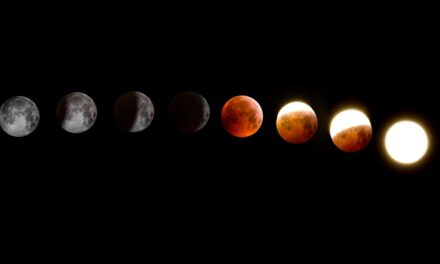Madeenan revelations are all those verses and chapter of the Qur’aan which were revealed after the Hijrah (the emigration to Madeenah). This includes verses which were revealed during the battles, as well as those revealed in Makkah and Minaa during and after the Farewell Pilgrimage. All of these verses are considered Madeenan because they represent the revelations of the second stage of the Islaamic movement, in which the consolidation of the Islaamic state took place.
The following are some of the main characteristics of Madeenan verses:
Laws:
Once Madeenah had become the new center of the Islaamic movement, the Islaamic state was born.The Prophet (ﷺ) became ruler over the Muslims of Madeenah, as well as the Jews and the Arab idol worshippers who lived there. A constitution was drawn up and a system of justice was established. Thus, the verses during the Madeenan stage contained the many social, economic and spiritual laws which were necessary for the organization and development of an Islaamic state. It was during this period that the last three pillars of Islaam, zakaah, sawm and hajj, were revealed. Likewise, it was during this period that drinking alcohol, eating swine and gambling were all forbidden.
People of the Book:
In Madeenah, Muslims came in contact with the Jews for the first time. In order to try to shake the beliefs of the Muslims, the Jews used to ask the Prophet(ﷺ) various questions about Allaah, the earlier prophets, and the unseen. Thus, a number of Madeenan verses represented answers to the many questions raised by the Jews.
The Muslims of Madeenah also came in contact with the Christians on a larger scale. As a result of that, we find a number of Madeenan verses clarifying Christian misconceptions about Prophet Jesus and Allaah. They pointed out that Jesus’ birth was not greater than that of Aadam, who had neither father nor mother. They also stressed that the miracles of Jesus, such as bringing the dead back to life, were only by Allaah’s permission. Thus, Jesus was not a god nor the son of Allaah, and Allaah was not the third of three.
The Munaafiqoon:
For the first time since the beginning of the final message we find people entering Islaam yet not believing in it. In Makkah, Muslims were oppressed and attacked, so no one would enter Islaam unless he truly believed. On the other hand, the Muslims of Madeenah were strong and they ruled the city. Thus, we find some people entering Islaam in order to benefit from its strength and to oppose it from within.
‘Abdullaah ibn Ubayy ibn Salool was about to be crowned king of Madeenah when the Prophet (ﷺ) arrived. The Prophet (ﷺ) was made the ruler of Madeenah, and ibn Salool’s hopes were ruined. Since the Muslims were strong and he could not openly oppose them, he accepted Islaam and worked against it from within. He eventually became the head of the Munaafiqoon (hypocrites). Thus, the verses of the Madeenan stage warned the Muslims about the dangers of the hypocrites and taught them how to deal effectively with them.
Jihaad:
The right to fight against the enemy was given for the first time in Madeenah. During the Makkan period, Muslims were forbidden to fight back. This was for two basic reasons: (1) The Muslims were a minority and could easily have been completely wiped out. (2) This was a stage where the believers’ characters were being forged.
One of the foremost qualities required of those who would carry the message was steadfast patience. Only those of strong faith could survive this test. The Makkan period prepared the foundation of the Islaamic movement to come. It was during the Madeenan stage that a series of battles were fought against the forces of disbelief, until finally Makkah was conquered and the whole of the Arabian peninsula came under the rule of Islaam.
Thus, a number of the Madeenan verses taught Muslims the Islaamic principles of war. For example, they taught how to deal with prisoners of war and they forbade retreat during an attack except as a trick to trap the enemy. They also encouraged the Muslims to prepare themselves with the best weapons and battle gear they could find.
Long Verses:
The Madeenan verses tended to be longer than those of Makkah. In fact, there are a number of Madeenan verses which are longer than whole soorahs of the Makkan period. The longest verse of the Qur’aan is the verse on loans in the Madeenan Soorah al-Baqarah.The shortest soorah of the Qur’aan is the Makkan Soorah al-Kawthar, which contains a total of only 11 separate words in its three short verses.
The need to catch the attention of unwilling listeners was no longer there, because Islaam had become strong and its followers were many. Thus, the audience at this stage was quite willing to listen attentively to longer verses teaching the vital laws of Islam.
Order of the Soorahs:
Although all of the Makkan verses were revealed during the same period, they were neither memorized nor written in the same order in which they were revealed. Verses from various soorahs were revealed together, and sometimes whole soorahs were revealed at once.
Whenever single verses were revealed, the Prophet (ﷺ) would tell his scribes to write it in the soorah to which it belonged. If a new soorah was revealed, he would recite the soorah in the order it was to be recorded. Once the Madeenan verses and soorahs began to be revealed, the Prophet (ﷺ) would tell his companions to place them before or after certain Makkan soorahs and verses.
Thus, when the revelation of the Qur’aan was complete, Makkan verses could be found within Madeenan soorahs and Madeenan verses within Makkan soorahs. The Prophet (ﷺ) ordered the verses and soorahs of the Qur’aan according to Allaah’s command. The reason for the mingling may have been that the verses were revealed according to the needs of a developing community, whereas the order for reading purposes was varied to make it clear that the Qur’aan is not a mere historical document. By divorcing the verses from the chronological order of their revelation, the general and universal aspects of their message are emphasized.




![11 Benefits of Sadaqah [7th is a Secret]](https://sunnahinsights.com/wp-content/uploads/2023/12/pexels-photo-12181163-440x264.jpeg)


Recent Comments